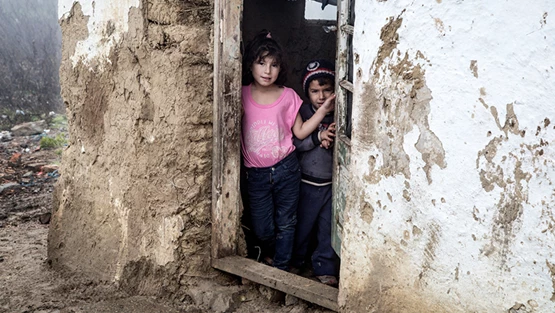What do the World Bank, Oxfam, and the Commitment to Equity Institute have in common? All seek to reduce inequality through policy choices; find fiscal policies critical to this end; and have taken collective action to ensure the Sustainable Development Goals (SDGs) framework is well-equipped to monitor the distributional impact of taxes and transfers.
The SDGs are intended to provide policy direction in critical areas for people's and the planet's well-being, and to measure governments' progress in those areas. Including SDG 10 ("Reduce inequality within and among countries") in the framework has meant officially recognizing inequality as a constraint to development and poverty eradication, and therefore as a concern for national and international policy making. However, until now, SDG 10 had no corresponding indicator to monitor the impact of tax and transfers on income distribution.
The welcome news is that such monitoring is now possible within SDG 10 thanks to the introduction of indicator 10.4.2 – the Redistributive Impact of Fiscal Policy – which is the difference between prefiscal and postfiscal income inequality (as measured by the Gini coefficient). In March 2020, the United Nations Statistical Commission ratified the adoption of the indicator, following a proposal submitted by Oxfam, CEQ, and the World Bank to the Inter Agency and Expert Group (IAEG)-SDGs 2020 Comprehensive Review.
Fighting poverty and inequality requires a systematic analysis of fiscal policies, accompanied by country-level scrutiny of the impact of the different components of the fiscal system. Developed by the Commitment to Equity Institute (CEQ) at Tulane University, the Redistributive Impact of Fiscal Policy indicator is already being used by both the World Bank and IMF to guide their own programs and policy advice to countries. The indicator is also included in the Commitment to Reducing Inequality Index developed by Development Finance International and Oxfam. With its inclusion among the SDG indicators, policy analysts, policy makers and policy advocates throughout the world will be given the opportunity to systematically track progress in fiscal policy's contribution to more equitable societies.
The indicator is available for at least one year in a significant number of countries and can be estimated for any country, using household surveys and government fiscal or budgetary data. The World Bank serves as custodian agency for the indicator, with the CEQ and the OECD as data compilers. All will continue to play a vital role in helping countries generate and harmonize the data necessary for compiling the indicator. The aim is to ensure all countries have the data required to estimate both postfiscal consumable income (which includes indirect taxes and subsidies) and disposable income.
The inclusion of the Redistributive Impact of Fiscal Policy in the SDGs framework is an important step toward the creation of a global standard for assessing government effectiveness in tackling inequality. It will provide a picture of the adoption of progressive fiscal policies at the national level and become a point of reference for international institutions providing policy advice to countries.
For example, the World Bank already uses this and related indicators to assess the equity impacts of taxes and spending and to inform its policy advice on equitable fiscal reform. Similarly, the International Monetary Fund (IMF), which is seeking to integrate inequality into its work, could systematically include this indicator in its country surveillance analysis. The Addis Tax Initiative – the group of governments committed to domestic revenue mobilization – has already adopted an indicator that measures the Gini impact of country's tax systems as part of its monitoring framework. However, as we know, to assess the redistributive impact of fiscal policy, it is essential to look at the spending side as well. The newly adopted indicator would fill that gap.
Tax and transfers are one of the most powerful instruments in the hands of government to tackle poverty and inequality. Incidence analysis, however, shows that their combined impact varies hugely across countries. For example, comparing the market income and consumable income Gini coefficients shows that fiscal policies reduced income inequality by 19% in Georgia and by 1.5% in Guatemala. Indirect taxes and subsidies frequently — but not always — have a regressive impact, while net direct taxes and social transfers are always equalizing. The extent of redistribution depends both on size and progressivity. For instance, Uruguay achieves more redistribution from its social spending than Bolivia, which has higher levels of social spending.
Ultimately, it is the amount of resources and the specific combination of taxation and spending that determines the net changes in distribution. Importantly though, the impact on poverty may differ from the impact on inequality. While analyses show that fiscal policy always reduces inequality — albeit sometimes very negligibly — that is not true for poverty. For example, in El Salvador, Ethiopia and Nicaragua, the poor are net payers into the fiscal system, and in Armenia the tax system is less progressive (though improving in the last few years), due to a combination of high regressive consumption taxes and cash transfers that are not sufficiently pro-poor.
Monitoring change in the Redistributive Impact of Fiscal Policy indicator over time at the country level will be even more critical in the aftermath of the COVID-19 pandemic, as the short and medium-term policy response will demand huge amounts of public spending to address the health emergency and the economic fallout. After the pandemic, more progressive tax systems will be needed not only to raise revenues more fairly, but also to improve the resilience of tax systems to crises and their response to household hardships. The SDG 10.4.2 indicator will be critical in ensuring that additional spending and revenues are leveraged in equitable ways, so that they contribute to reducing poverty and inequality throughout the world.





Join the Conversation